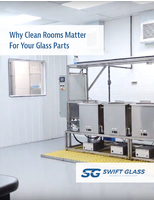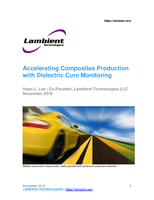Keynote Speakers will examine automotive-plastics market trends.
Press Release Summary:
Organized by Detroit Section of SPE®, 14th annual SPE® TPO Automotive Engineered Polyolefins Conference will run from September 30 to October 3, 2012 and feature 5 keynote speakers. Keynote titles/subjects include "The Outlook for Energy: A View to 2040," "Innovative Concepts for Automotive Interiors," "Throwing Light On the Future: Mega Trends and their Ability to Shape Personal Mobility," "Global Polyolefins Overview," and "Less Polypropylene in Automotive Applications."
Original Press Release:
Organizers for SPE® TPO Auto. Engineered Polyolefins Conference Announce 2012 Keynote Speakers
TROY, (DETROIT) MICH. - The fourteenth-annual SPE® TPO Automotive Engineered Polyolefins Conference, the world's leading automotive engineered-polyolefins forum, which is organized by the Detroit Section of the Society of Plastics Engineers (SPE®) and this year runs from September 30-October 3, 2012, will feature five keynote speakers who will highlight important trends that are reshaping the global automotive-plastics market. According to Bill Windscheif, conference chair and president, Advanced Innovative Solutions, "The 2008-2009 global automotive crash triggered major changes in the engineered polyolefins supply chain that are still impacting the industry three-and-a-half years later. That's why our committee intersperses keynote talks throughout the conference to help attendees better understand challenges and opportunities still facing the automotive-supply community."
The conference will open on Monday morning with a keynote by Exxon Mobil Corp. Energy Advisor Vincent Yuskiewicz who will give a talk entitled The Outlook for Energy: A View to 2040, which will address a long-term view of the world's energy future, including the more efficient use of energy through technologies such as hybrid vehicles.
Yuskiewicz will discuss global energy demand, which is expected to rise by about 30 percent from 2010 to 2040. "ExxonMobil expects that demand growth would be approximately four times that amount without projected gains in efficiency," he says. "Efficiency is the key reason why energy demand will rise by only about 1 percent a year on average even as global GDP rises by nearly 3 percent a year. It also is the reason why energy demand in the developed world will remain relatively unchanged through 2040 even as its economic output nearly doubles. In transportation, ExxonMobil sees advanced vehicles, including hybrids, accounting for 50 percent of the cars people will drive in 2040, compared to about 1 percent today. This, plus improved fuel economy in conventional vehicles, will cause demand for energy for personal vehicles to remain essentially flat through 2040 even as the number of personal vehicles in the world doubles."
After lunch on Monday, Patrick (Pat) Stewart, vice-president and executive director of Interior Systems at Inteva Products, LLC will speak on the topic of Innovative Concepts for Automotive Interiors.
About his topic, Stewart says, "The automotive interior continues to evolve into a home away from home. What the OEMs considered luxury 5 years ago is now being styled into entry-level and mid-level vehicles. In addition, the pressure on fuel economy continues to drive the need for lower mass materials and systems. The challenge for the supplier is to deliver innovative materials and solutions to enable the styling, manage total system cost to the price point of the vehicle, with no sacrifice in performance, durability, and safety."
On Tuesday morning, Mary-Beth Kellenberger, director-Global Automotive Aftermarket Research, Frost & Sullivan, will speak on Throwing Light On the Future: Mega Trends and their Ability to Shape Personal Mobility.
Kellenberger explains, "This presentation will examine a variety of mega trends currently at work in society at large and discuss how they will impact personal mobility and the vehicles we use for personal mobility. We'll cover topics like the evolution of urbanization and smart cities, including implicit social changes, business-model evolution, and a look at the countries in 2020 that will be the next game changers beyond the BRIC (Brazil, Russia, India, China) nations. We'll also review the evolution of personal commuting and its effects on personal vehicles, and then explore future mobility innovations, including multi-modal commuting and alternative transportation plans already underway at various automakers. Since smart is the new green, we'll define what a smart connected car is and what that implies. We'll also look at the top 50 emerging vehicle technology trends, take a snapshot of a 'Zero-Concept' world in 2020, and then conclude with how to view from the macro level but implement from the micro level."
Tuesday afternoon will feature a keynote on Global Polyolefins Overview by Howard Rappaport, senior director-Global Plastics at IHS Chemical at this year's conference.
Rappaport notes, "The global polyolefin market is changing dramatically in response to the fast-advancing industrialization process in emerging markets, as well as improvements in global communications and trade liberalization. Investments are increasingly concentrated in feedstock cost-advantaged or high-demand growth areas, like the Middle East and the Asia/Pacific region. The same trend, particularly in West Europe, is driving industry consolidation, operations optimization, and moves toward the production of higher value, performance products. In North America, low-cost feedstock from shale gas is revitalizing the polyethylene (PE) business, making PE exports highly competitive globally. Growth in polyolefin consumption will be mainly driven by the rapid economic development of numerous transition countries in the Asia/Pacific region, Central Europe, the Middle East, and South America. Higher monomer prices have significantly reduced the cost advantage polypropylene previously enjoyed vs. other polymers and that is limiting growth prospects in lower-end packaging applications. Recent high volatility in polypropylene prices and tight feedstock supplies, particularly in North America, are also adversely affecting consumption. Yet, polypropylene's excellent properties and versatility will continue to open new and higher value markets. The future shows continued strong consumption growth."
And Wednesday will start off with a keynote from Alexander (Alex) Buechler, owner and publisher of HB Media who will give a talk about about Less Polypropylene in Automotive Applications.
"An average passenger car contains 130 pounds (60 kilograms) of polypropylene," says Buechler, "but each year that number drops by approximately 0.70 pounds (0.33 kilograms) due to better flowing materials, which allow wall stock to be reduced; use of foamed polypropylene that lowers mass; and reduction in heavy fillers like talc - all of which means less polypropylene in our cars. We will show which components are most affected, as well as the vehicle segments where polypropylene is making a particularly strong return. Contradictory trends in North America, Europe, and Asia are also covered."
About the TPO Conference
Since 1998, the SPE TPO Automotive Engineered Polyolefins Conference has highlighted the importance of rigid and flexible polyolefins throughout the automobile - in applications ranging from semi-structural composite underbody shields and front-end modules to soft-touch interior skins and bumper fascia. Engineered polyolefins have been the fastest-growing segment of the global plastics industry for more than a decade owing to their excellent cost/performance ratio. The show typically draws approximately 500 attendees from 20 countries on four continents who are interested in learning about the latest in rigid and elastomeric TPO as well as TPE and TPV technologies. Fully a third of conference attendees say they work for a transportation OEM, and roughly 20% work for a tier integrator/molder, with the balance from materials or reinforcement suppliers, equipment OEMs, industry consultants, and members of academia. This year's conference returns to the Troy Marriott in the Detroit suburbs. A variety of sponsorship packages are available for companies interested in showcasing their products and/or services.
The mission of SPE International is to promote scientific and engineering knowledge relating to plastics worldwide and to educate industry, academia, and the public about these advances. SPE's Detroit Section is active in educating, promoting, recognizing, and communicating technical accomplishments for all phases of plastics and plastic based-composite developments - particularly in the automotive industry. Topic areas include applications, materials, processing, equipment, tooling, design, and development.
For more information about the SPE TPO Automotive Engineered Polyolefins Conference, to view the conference's evolving technical program, or to register to attend the event, please visit auto-tpo.com/ or speautomotive.com/tpo.htm, or call the group at +1.248.244.8993, or write SPE Detroit Section, 1800 Crooks Road, Suite A, Troy, MI 48084, USA. For more information on the Society of Plastics Engineers or other SPE events, visit the SPE website at www.4spe.org, or call +1.203.775.0471.
® SPE is a registered trademark of the Society of Plastics Engineers. All other trademarks are the property of their respective owners.




